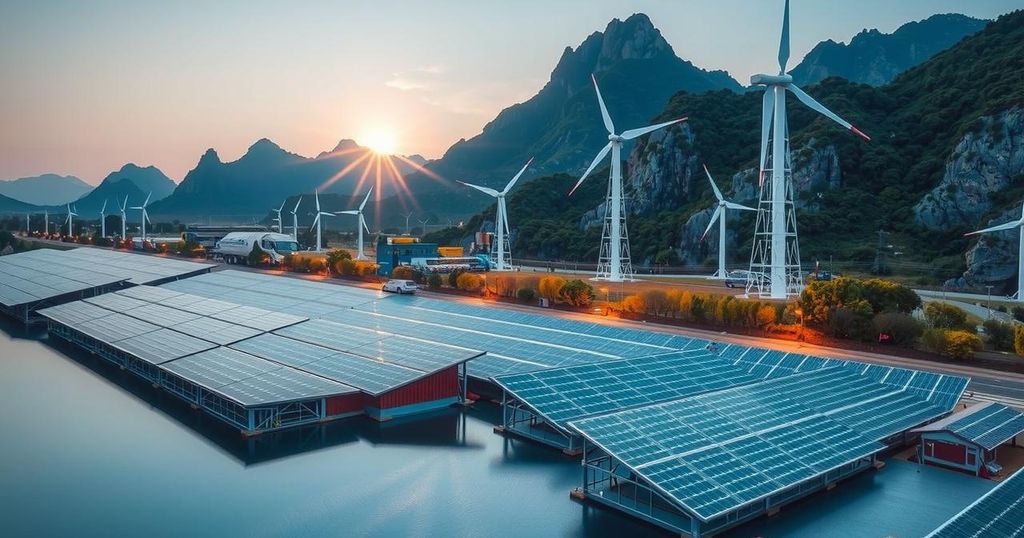Trump’s Administration: A Setback for Global Climate Action and Renewable Energy Leadership

The election of Donald Trump poses significant challenges to global climate change efforts, as the U.S. is set to prioritize fossil fuel interests. Europe and China are preparing to lead in renewable energy initiatives in response to U.S. retrenchment. The urgency to combat climate change intensifies as the risk of exceeding critical temperature thresholds grows, highlighting the need for cohesive global action.
The imminent presidency of Donald Trump heralds a crucial period for global climate policy, as the United States appears poised to retreat from its role as a leader in renewable energy. Trump’s administration is expected to favor fossil fuel interests, undermining initiatives aimed at combating climate change. As international actors like the European Union and China observe this shift, they are gearing up to advance their own renewable energy agendas, potentially filling the void left by a less engaged United States. Experts express concerns that the U.S. actions will set back climate progress, allowing other nations, particularly China, to dominate the renewable energy sector. The global urgency to address climate change intensifies as the window to limit warming narrows, presenting a dire need for cohesive, large-scale action against fossil fuel dependency.
The article discusses the potential consequences of Donald Trump’s administration on global climate change efforts. With Trump’s pro-fossil fuel stance and dismissal of climate change as a hoax, the U.S. is likely to withdraw from multilateral climate agreements post-New Year’s. This perceived retreat places added pressure on other nations to step up their climate initiatives, particularly within the European Union and China, positioning them as potential leaders in renewable energy amidst U.S. inconsistencies.
In conclusion, Trump’s presidency may significantly hinder U.S. engagement in global climate initiatives, permitting rivals like China to ascend as leaders in the renewable energy sector. As the world faces an accelerating climate crisis, the limitation of temperature rise becomes increasingly critical. This situation underscores the necessity of robust international collaboration to address climate challenges effectively and the importance of sustained investments in clean energy alternatives across the globe.
Original Source: www.rollingstone.com






